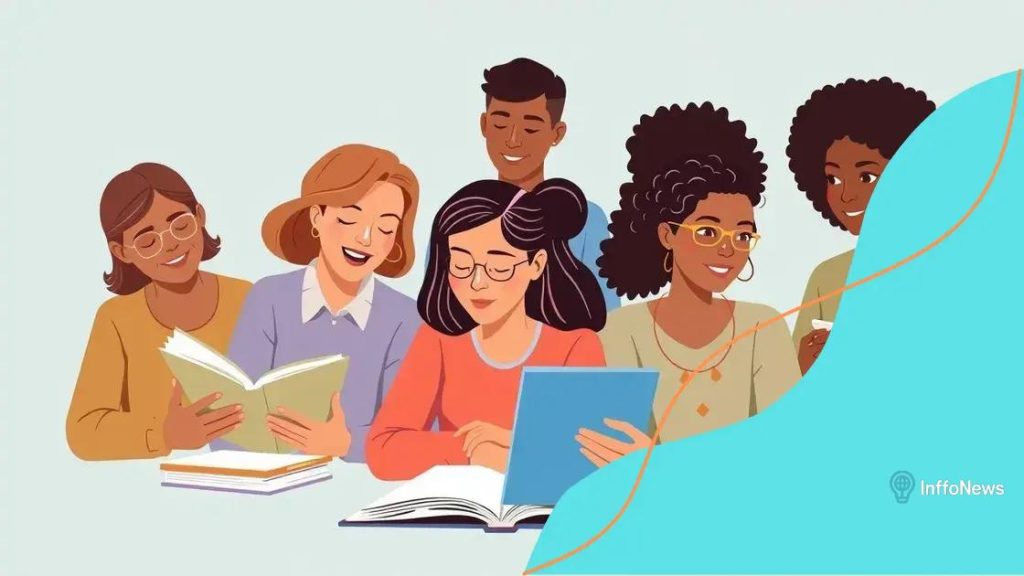Lifelong learning initiatives: Unlocking your potential

Anúncios
Lifelong learning initiatives promote continuous education, enabling individuals to acquire new skills, enhance career prospects, and adapt to changing environments throughout their lives.
Lifelong learning initiatives play a crucial role in personal and professional development. Have you ever wondered how ongoing education can significantly impact your career? In this article, we’ll delve into the importance of continuous learning and how it shapes your future.
Anúncios
Understanding lifelong learning initiatives
Understanding lifelong learning initiatives is essential for anyone looking to grow personally and professionally. These initiatives can take many forms, from formal education to self-directed study.
What Are Lifelong Learning Initiatives?
Lifelong learning initiatives refer to programs and opportunities that encourage continuous learning throughout a person’s life. They can include workshops, online courses, and community classes. These initiatives help individuals stay updated with the latest skills and knowledge.
Benefits of Lifelong Learning
Engaging in lifelong learning offers numerous benefits:
Anúncios
- Enhances career prospects
- Boosts personal satisfaction
- Expands social networks
- Encourages adaptability to change
By participating in these initiatives, people not only gain new skills but also meet others, forming valuable connections.
Moreover, lifelong learning can be tailored to fit your interests and needs. Whether you’re passionate about a new subject or want to master a skill for your job, there’s an opportunity for everyone. Online platforms have made learning more accessible than ever, allowing you to study at your own pace.
Each person’s journey into lifelong learning is unique. It can stem from personal motivation or the desire to advance in a career. The key is to stay curious and open-minded, seeking out new knowledge as it becomes available. Embracing this mindset can lead to richer experiences and greater fulfillment in life.
Benefits of lifelong learning
The benefits of lifelong learning are profound and far-reaching. Engaging in continuous education plays a crucial role in personal development and career growth.
Career Advancement
One of the most significant advantages of lifelong learning is the potential for career advancement. By acquiring new skills, you stay competitive in the job market. Employers often seek individuals who show a commitment to self-improvement.
- Staying relevant in your field
- Gaining new qualifications
- Improving job stability
- Enhancing professional networks
These aspects contribute not only to personal success but also to organizational growth, as companies benefit from having knowledgeable employees.
Additionally, lifelong learning fosters personal growth. It opens minds to new ideas and challenges existing beliefs. When individuals engage in learning, they often find new interests and hobbies that enrich their lives.
Improved Mental Health
Participating in educational activities can also enhance mental health. Studies show that learning new information can reduce stress and increase happiness. Being engaged in learning provides a sense of purpose.
Moreover, learning can be a social activity, allowing individuals to meet new people. Whether through classes, workshops, or online forums, connecting with others enhances both learning and well-being.
How to get started with lifelong learning

Getting started with lifelong learning can be both exciting and rewarding. Knowing how to embark on this journey is essential for continuous growth. One way to begin is by identifying your interests and goals.
Identify Your Learning Goals
Think about what skills you want to develop or what subjects interest you. Setting clear and achievable goals helps direct your learning efforts. You may want to enhance existing skills, explore new fields, or even shift careers entirely.
- Consider what excites you about learning.
- Think about your career aspirations.
- Reflect on hobbies you would like to deepen.
- Evaluate areas for personal improvement.
Once you have clearly defined goals, you can create a plan. This plan might include resources like books, online courses, or workshops. Utilizing a variety of materials keeps learning engaging and dynamic.
Find Resources and Opportunities
There are numerous resources available for lifelong learners. Online platforms offer courses on almost any topic imaginable. Libraries and community centers often provide workshops and classes, which can be a great way to meet people while learning.
Consider joining local groups or online forums to connect with others who share your interests. Discussing topics with peers can deepen your understanding. Engaging in these communities also makes learning more enjoyable.
As you begin this journey, remember that lifelong learning is about progress, not perfection. Take small steps, and don’t hesitate to experiment with different learning styles. The key is to stay curious and open to new experiences.
Overcoming barriers to learning
Overcoming barriers to learning is an important step in the journey of lifelong education. Many people face challenges that can make it difficult to learn new skills or acquire knowledge. Recognizing these barriers is the first step toward addressing them effectively.
Common Barriers to Learning
Some common barriers include lack of time, limited access to resources, and negative self-perceptions. Each of these obstacles can hinder your learning progress.
- Lack of Time: Busy schedules can make it hard to dedicate time to learning.
- Limited Access to Resources: Not everyone has access to educational materials or supportive environments.
- Negative Self-Perception: Doubting your abilities can decrease motivation and create a fear of failure.
To combat these barriers, it is essential to develop strategies tailored to your unique situation. By creating a structured plan, you can make learning a priority, even with a packed schedule.
Strategies for Success
Start by setting realistic goals and breaking them down into smaller, manageable tasks. This approach helps create a clear path forward. You can also look for alternative resources, such as online courses or community workshops, that better fit your circumstances.
Seeking support from friends, family, or learning communities can also make a significant difference. Connecting with others who share your interests can motivate you and provide encouragement.
Ultimately, the key to overcoming challenges is to stay persistent. Embrace a mindset that values growth and improvement, recognizing that setbacks are part of the learning process. Adopting a positive outlook can propel you toward your educational goals.
Success stories in lifelong learning
Success stories in lifelong learning inspire many people to pursue their education continuously. These narratives highlight how individuals from various backgrounds have transformed their lives through learning.
Real-Life Examples
Many people have experienced substantial changes by committing to lifelong learning. For instance, consider individuals who have changed careers by acquiring new skills through online courses. They often share how learning helped them gain confidence and open new doors.
- Adult learners: Many adults return to school for a degree or certification after years in the workforce, finding fulfillment and new opportunities.
- Self-taught entrepreneurs: Some successful business owners learned crucial skills by seeking knowledge independently, using resources like books and online tutorials.
- Community college graduates: These individuals often credit their education with enabling them to achieve further academic or career goals.
These examples show that the opportunity to learn is always available, no matter your age or situation. Stories from people who have successfully navigated challenges often highlight key lessons learned along the way.
Key Takeaways from Success Stories
Listening to these success stories can be powerful. They remind us that learning is not limited to traditional settings. Lifelong learning often comes from experiences, mistakes, and perseverance. Many individuals emphasize the importance of having a growth mindset. This perspective encourages them to embrace challenges and view failures as learning opportunities.
Many successful learners also express the significance of support networks. Collaborating or learning with others boosts motivation and accountability. Engaging in community learning can lead to valuable insights and shared experiences that enhance personal growth.
In summary, embracing lifelong learning can lead to incredible opportunities for personal and professional growth. Through the success stories of individuals who faced their barriers and pursued their goals, we see that learning is a lifelong journey. Whether you’re just starting or are well into your learning path, the key is to stay curious and committed. Remember, every small step counts on the path to achieving your dreams.
FAQ – Frequently Asked Questions about Lifelong Learning Initiatives
What are lifelong learning initiatives?
Lifelong learning initiatives refer to programs and opportunities that encourage continuous education throughout a person’s life.
How can I get started with lifelong learning?
You can start by identifying your interests, setting clear goals, and seeking out resources like online courses, workshops, or community classes.
What are some benefits of lifelong learning?
Benefits include career advancement, personal fulfillment, improved mental health, and the ability to adapt to changing job markets.
How can I overcome barriers to learning?
To overcome barriers, create a structured learning plan, seek support from others, and maintain a positive mindset focused on growth.





